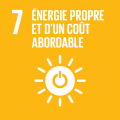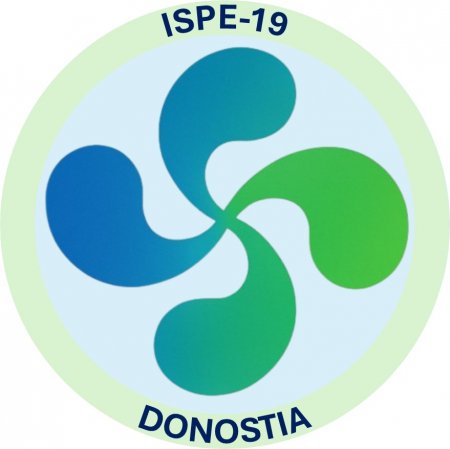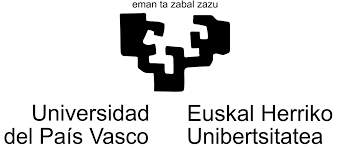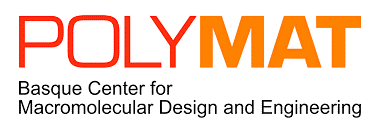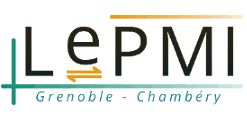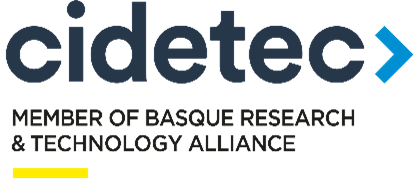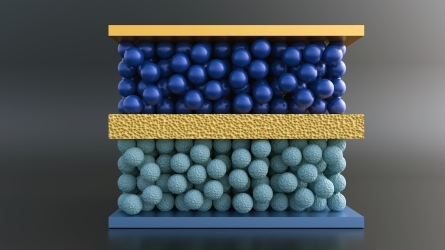
19th International Symposium on Polymer Electrolytes (ISPE-19)
Description
ISPE-19 will take place at Donostia–San Sebastián on 1-5 June, 2026.
Nowadays, there is an urgent need to find efficient and sustainable materials to produce clean energy and to store it in the near future. Polymer electrolytes are key materials in the transition to sustainable and clean energy technologies such as energy storage and conversion. The versability and unique properties of polymer materials lend them the potential to speed up the clean energy transition. This symposium seeks to provide fruitful discussions between chemists, physicists, electrochemists, engineers, etc. from around the world thanks to highlighted scientific talks of next-generation electrochemical devices based on polymer electrolytes.
We are delighted to welcome you to Donostia–San Sebastián, a pioneering city that work and support of over 50 public and private entities from strategic sectors such as biosciences, nanotechnology, energy, and ICT. Its commitment to local policies supporting innovation and scientific excellence promote knowledge exchange and collaborations. The symposium will take place at the Miramar Palace (https://www.miramar.eus/en/the-palace/). It will be five-day program including plenary talks, keynotes, invited talks, oral sessions, poster presentations, and activities specifically designed to support and connect senior and young researchers in polymer electrolyte field.
We look forward to welcoming you to Donostia-San Sebastián!
CONFIRMED SPEAKERS
- Michel Armand (CIC Energigune, Spain)
- Nitash P. Balsara (University of California, Berkeley, USA)
- Sandrine Lyonnard (CEA, France)
- Vito Di Noto (University of Padova, Italy)
- Louis Madsen (Georgia Institute of Technology, USA)
- Steven Holdcroft (Simon Fraser University, Canada)
- Daniel Brandell (Uppsala University, Sweden)
- Jelena Popovic-Neuber (University of Stavanger, Norway)
- Amy Bazylak (University of Toronto, Canada)
- Cristina Iojoiu (LEPMI, France)
- Yoichi Tominaga (Tokyo University of Agriculture and Technology, Japan)
- Claudio Gerbaldi (Politecnico di Torino, Italy)
- Renaud Bouchet (Grenoble Alpes University, France)
- Jasna Jankovic (University of Connecticut, USA)
ABSTRACT SUBMISSION
Please use this TEMPLATE for the submission of your abstract and send it as an attached PDF file to ISPE19th@gmail.com
The abstract should be submitted by March 27, 2026. Please indicate in your email which your preference is: oral contribution or poster presentation.
Finally, we plan to publish selected papers from ISPE-19 in a virtual special issue of Electrochimica Acta. Stay tuned for further updates.
IMPORTANT DATES
- Abstract deadline: 03/27/2026
- Abstract Acceptance: 04/24/2026
- End of early bird registration: 04/30/2026
- Registration closes: 05/29/2026
The Organizing Committee is composed of:
- Oihane Sanz (University of the Basque Country, Spain)
- Radmila Tomovska (University of the Basque Country, Spain)
- Irune Villaluenga (POLYMAT-EHU, Spain)
- Didier Devaux (LEPMI, France)
- Nicolas Goujon (University of the Basque Country, Spain)
- Nery M. Aguilar (POLYMAT-EHU, Spain)
- Martino Airoldi (POLYMAT-EHU, Spain)
- Laetitia Dubau (LEPMI, France)
- Grégoire Dupont (LEPMI, France)
- Yanire Armero (University of the Basque Country, Spain)
Objectives
- Promot scientific discussions and knowledge exchange between chemists, physicists, electrochemists, engineers, etc. from around the world to highlight advanced results based on polymer electrolytes for the next-generation electrochemical devices.
- Create a warn enviroment for sharing ideas and collaborations in the polymer electrolyte field.
Activity directed to
- University student
- Professionals
Directors

Irune Villaluenga Arranz
POLYMAT
Irune Villaluenga is an Ikerbasque Associate Professor and Ramon & Cajal Fellow at POLYMAT, University of the Basque Country in Spain. She obtained her PhD in Chemistry at the University of the Basque Country and Tecnalia Research & Innovation (2010). She did post-doctoral stays at CIC Energigune (2011-2012) and Lawrence Berkeley National Laboratory/University of California, Berkeley (2013-2016). Her current research interests include the development and understanding of novel inorganic-polymer hybrids, bio-based polymer and nanostructured block copolymers for energy storage applications.

Didier Devaux
Since 2016, Didier Devaux is a CNRS research scientist at LEPMI lab. (Univ. Grenoble Alpes, Univ. Savoie Mont Blanc, CNRS, Grenoble INP) on electrochemical energy storage devices. He graduated in 2012 with a PhD in materials science on electrochemical and physico-chemical characterizations of polymer electrolytes for Li metal battery. He is focusing on the analysis of the functioning and failure modes of electrochemical energy storage devices by coupling techniques (in-situ and operando methodologies), notably using X-ray and Neutron techniques with electrochemistry and impedance. The objective being to tackle the phenomena at stake at the different relevant length scales typically from the local (nm) to the cell (cm) scale in devices comprising liquid, solid, and hybrid electrolytes.
Registration fees
Registration fee includes access to conference, access to abstracts & presentations, Coffee & Lunch-breaks during the conference, Social Activity and Banquet on June 4.
| Registration | Until 30-04-2026 | Until 29-05-2026 |
|---|---|---|
| 700,00 EUR | 750,00 EUR | |
| 500,00 EUR | 550,00 EUR |
Venue
Miramar Palace
Pº de Miraconcha nº 48. Donostia / San Sebastián
Gipuzkoa
Miramar Palace
Pº de Miraconcha nº 48. Donostia / San Sebastián
Gipuzkoa
Sustainable development goals
Agenda 2030 is the new international development agenda approved in September 2015 by the United Nations. This agenda aims to be an instrument to favour sustainable human development all over the planet, and its main pillars are the eradication of poverty, a reduction in equality and vulnerability and fostering sustainability. It is a unique opportunity to transform the world up to 2030 and guarantee human rights for all.

7 - Affordable and clean energy
Guaranteeing access to affordable, reliable, sustainable and modern energy for everyone. Key issues: universal access, increased proportion of clean energies, energy efficiency, research, fostering investments in energy infrastructures and clean technologies, modern and sustainable energy services.
More information